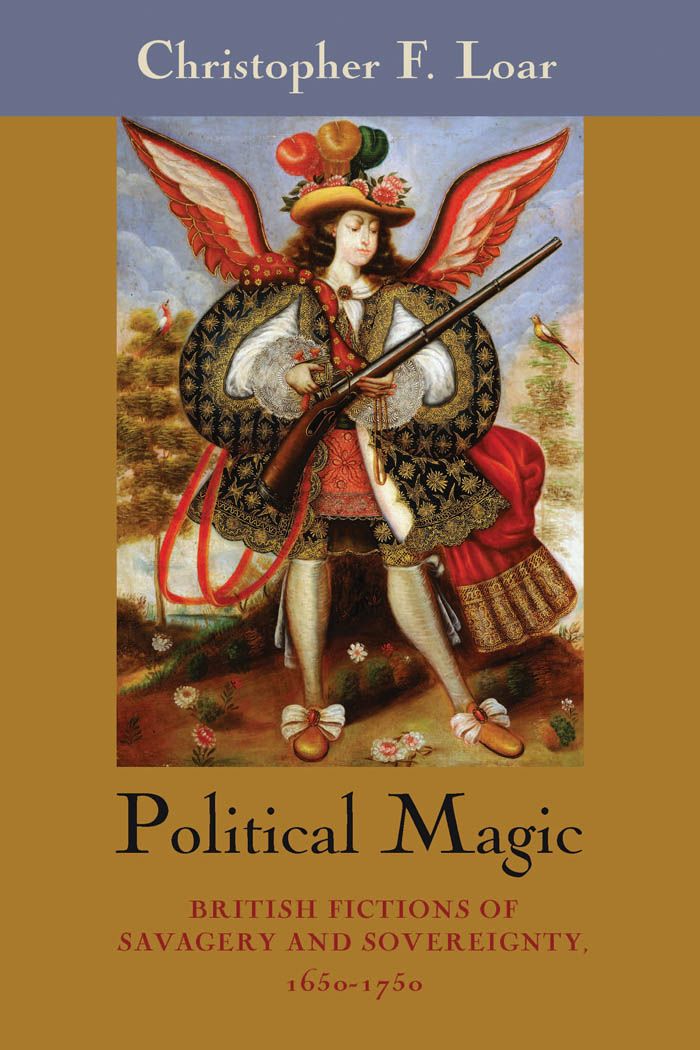Political Magic
British Fictions of Savagery and Sovereignty, 1650-1750

This book can be opened with

Political Magic examines early modern British fictions of exploration and colonialism, arguing that narratives of intercultural contact reimagine ideas of sovereignty and popular power. These fictions reveal aspects of political thought in this period that official discourse typically shunted aside, particularly the political status of the commoner, whose “liberty” was often proclaimed even as it was undermined both in theory and in practice. Like the Hobbesian sovereign, the colonist appears to the colonized as a giver of rules who remains unruly.
At the heart of many texts are moments of savage wonder, provoked by European displays of technological prowess. In particular, the trope of the first gunshot articulates an origin of consent and political legitimacy in colonial showmanship. Yet as manifestations of force held in abeyance, these technologies also signal the ultimate reliance of sovereigns on extreme violence as the lessthan-mystical foundation of their authority.
By examining works by Cavendish, Defoe, Behn, Swift, and Haywood in conjunction with contemporary political writing and travelogues, Political Magic locates a subterranean discourse of sovereignty in the century after Hobbes, finding surprising affinities between the government of “savages” and of Britons.
Any one interested in the tradition of the modern novel not indebted to realism or how to artfully combine theory, politics, and literature will find much to admire in Loar’s Political Magic. Exploring the way that magic, deceit, and sovereignty were habitually yoked in writers whose politics were as various as Cavendish, Behn, Defoe, Swift, and Haywood, Loar’s book examines the way that their fictions repeatedly stage a foundational political moment that inaugurates a modern although ambiguous civilizing project, one fraught with technologically-enhanced violence, deferred violence, and magical instruments rather than reason or rhetoric as techniques of government. Loar shows through a series of persuasive close readings of political theory and fiction that liberalism, at its inception, registers pessimism about the tendency of sovereignty to exceed the law and turn subjects into enemies.
As pyrotechnic as it is closely reasoned, this bold and convincing new
book looks at the unlikely role that spectacular technologies of domination and enchantment played in the making of "modern" political community. Christopher Loar punctures the myth of modernity by reversing two standard narratives about the decline of magic and the rise of the
liberal subject. That subject's story, disturbingly beholden to technologies of violence and enchantment, is told through insightful new readings of Swift, Defoe, Behn, and Haywood. "Political Magic" reunites these writers and their fictions with the political philosophy and
savagely wondrous colonial practices of the seventeenth century.

